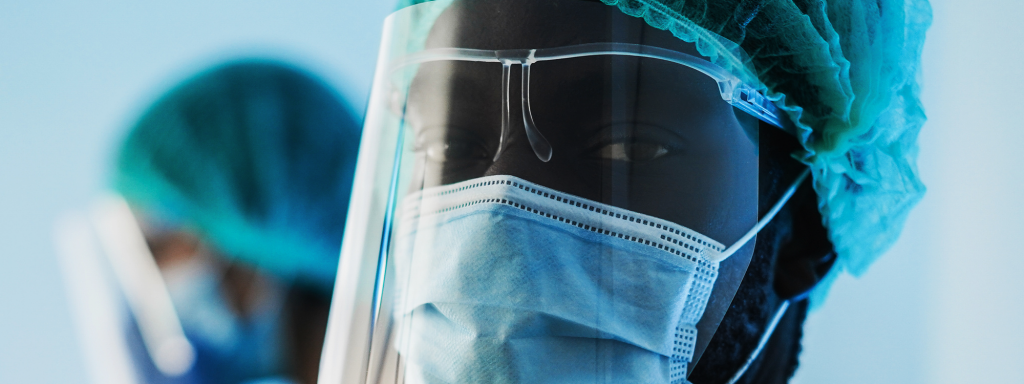When it comes to emergency medical evacuations, experience is EVERYTHING
Critical questions to ask your health insurance provider
If your health insurance provider answers ‘No’ to any of these questions, you could be in trouble.
1. Is there an emergency number you need to phone if you’re in trouble?
• Is it available 24/7, 365 days a year?
• Can they provide step-by-step protocols to follow in the event of an emergency?
• Are there language barriers?
2. If you’re travelling to/working in remote locations, can they verify that an ambulance will be able to reach you in an emergency and take you to a reputable medical facility for treatment?
3. Will the ambulance have Advanced Life Support paramedics on board to stabilise and treat you en route?
4. Does your health insurance policy cover you fully for air evacuation or is there an unrealistically low limit?
5. Can they reach you quickly?
Why? Because time – and experience – is everything in an evacuation. Hesitation could be fatal. When it comes to choosing your health insurance provider, you want the best. So take a journey behind the scenes and learn how we do it.
“Every medical evacuation is heart-wrenching,” says The Unisure Group’s Operations Director Cristina Meixieira. “This case reminded me once again of the frailty of life. And how having excellent medical care in the territories in which we work can never be measured in monetary terms. In fact, it’s priceless.”
Not only has the pandemic forced patients to put their scepticism aside, but SES’s Chief Medical Officer, Dr Sarah Taylor, says that it has also had the effect of freeing up more specialists’ time to accept virtual consultations.
In a ‘normal’ year, The Unisure Group conducts over 300 medical evacuations for our health insurance members. In 2020, with the outbreak of the COVID-19 pandemic, when cross-border travel made life threatening evacuations a near impossibility, we still managed to conduct 15 evacuations – all of them under extraordinary situations and requiring an immense amount of paperwork and preparation under extremely difficult air clearance restrictions
Unfortunately not all of the evacuations we conduct have positive outcomes, but what is consistent in each and every one is the 24/7 dedication that our members receive from our assistance team.

Cristina takes us behind the scenes of one of the medical evacuations she coordinated in 2020:
“In early June this year, a six-year-old girl had a devastating accident while spending time with her dad and two sisters in Lubumbashi, in the Democratic Republic of Congo.
“She accidentally hit a fence while riding her motorcycle. On impact the motorcycle caught fire. Her dad ran frantically to her rescue and grabbed her from the burning motorcycle. The little girl sustained severe burns all over her small body and the father sustained severe burns on his hands and arms.
“Both of them were admitted to ICU at a local, in-country hospital. Very tragically, the little girl succumbed to her injuries and passed away.
“The father, accompanied by his wife, could only be evacuated to South Africa a couple of days later, due to strict COVID-19 protocols.
“Bringing a patient to the nearest point of medical excellence during the pandemic was undoubtedly one of the most difficult procedures our team has ever done. I cannot explain in words the emotions and panic going through our hearts and minds – both because of the urgency of moving the patient to adequate care and the delays in having to deal with the relevant air traffic clearance authorities in both countries.”
“The father was admitted on 12 June at a specialised Burns Unit Medical Facility. He underwent several debridement procedures of his burns, followed by intensive sessions of skin grafting. He thankfully recovered well and was provided with the best possible care, including pressure garments and occupational therapy.
“Our Case Managers were not allowed into the hospital to visit the patient due to very strict COVID-19 hospital protocols, but we did everything we could to offer remote support. The patient and his spouse were able to safely return to the DRC after the harrowing ordeal.
“This case will always stay with me because a precious life was lost and another was saved. Words fail me when I think of what all involved went through – the anguish, the relief and in the end, the acceptance, which we all have to bear.”
Medical evacuations under strict COVID-19 protocols are extremely challenging. This is where choosing a health insurance provider with on-the-ground experience is critical…
Due to government restrictions in each country, and the requests for aviation and national authority permissions, the evacuation process takes much longer than normal.
Our local service partners are still operating during this unprecedented period, but all evacuations are subject to clearances from the aviation and national authorities (in both the departing and the destination country). This means that the planning is very complex and time-consuming.
Due to closed borders, most countries will only accept national citizens. One option is then to transport patients back to their home country. Where this is not possible, we have had to find other ways of getting the patient the required care – but again, a lot of time is needed to get the necessary permissions from the national authorities.
•For evacuations of COVID-19 negative patients, a negative test is requested, and no accompanying relatives are allowed on the flights.
•For evacuations of COVID-19 positive patients, the biggest challenge is that most countries will not allow the patient to leave the country, in order to prevent the virus from spreading.
All evacuation requests are evaluated on a case-by-case basis in order to find the best possible destination at that time, which is incredibly stressful while we hold lives in our hands and wait.
To learn more about The Unisure Group and our health insurance and medical evacuation services, visit www.unisuregroup.com/health/ or email us at info@unisuregroup.com.



